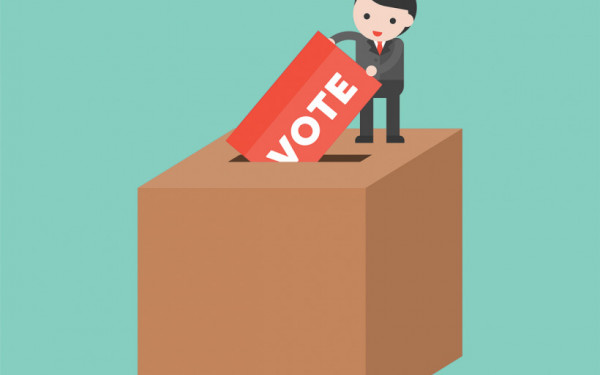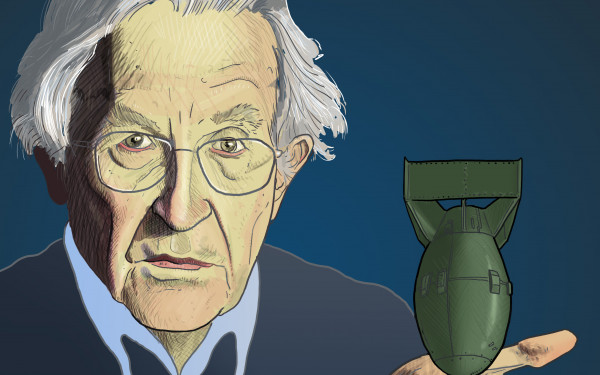Editorial: Beyond time for real change
U.S. election reminds us the world’s radical problems demand radical solutions
Joe Biden—barring a Captain America: The Winter Soldier-style coup—is the president-elect of the United States, and it wasn't just America that appeared to breathe a sigh of relief. Seeing President Donald Trump lose his bid for re-election brought a smile to faces all around the world.
And with a new American president, there will be all kinds of conjecture about what the next four years are going to be like. The Biden-Harris 2020 campaign painted itself as the progressive option in the election, but taking a closer look at their records paints an alarmingly different picture.
No, President-elect Joe Biden won’t call for banning Muslims from entering the county or appoint Supreme Court justices who can put the future of Roe v. Wade at risk, but—at a fundamental level—very little will change.
Republican Senate aside, Biden is nowhere near the left side of the political spectrum and yet has convinced millions that he is just that. He has a problematic record that includes voting for the Iraq war and against busing initiatives designed to facilitate the racial integration of public schools in the 1970s. The campaign seemed to make a point to go against so many of the policy positions that made Bernie Sanders an incredibly likeable and supported figure.
Performative activism should not come as a surprise to the Canadian electorate. Prime Minister Justin Trudeau and the Liberal Party have seemingly perfected the art of going back on their more progressive campaign promises.
They ran on a campaign of Indigenous reconciliation but defiled unceded Wet'suwet'en land to make way for the construction of a pipeline—despite putting up a pro-environmentalist front. When Mi’kmaq fisheries were attacked by white supremacists in Nova Scotia, Trudeau failed to condemn law enforcement’s inaction.
When the majority of Canadians supported higher taxes on the wealthy, Canada’s richest one per cent effectively saw their total tax rate decrease despite rising income numbers. Overseas, Canada has nurtured relations with regimes with abysmal human rights records, even selling military equipment to them.
This kind of insensitivity and inability to read the proverbial room just goes to show how performative the token “liberal” party—be it American or Canadian—has become.
Then comes the case of Vice President-elect Kamala Harris. The first Black person, first South Asian person, and first woman to hold that office are massive milestones that have real significance. However, her record as a prosecutor also calls into question her progressive credentials. She prosecuted marijuana offenders extensively—something that disproportionately affects People of Colour. Her stance of truancy saw parents jailed for it—a consequence she seemed to find quite funny given that she laughed about it.
Biden, too, shows undue deference to law enforcement—he is on record saying he not only won’t defund police departments but actually wants to increase funding to police.
Bringing forth substantive change does not happen overnight, but it also does not happen with the people currently in power. Be it in the United States government or the one right here in Canada, fundamentally changing the way a country is run and cares for its citizens cannot be done when the government’s priorities are so skewed.
A common denominator of all this lack of change is the same as always: money. Biden and Harris are both millionaires, and it doesn’t stop there. Members of Congress, people who often campaign as salt of the earth, everyday Americans fighting for their constituents in Washington, are very much not so. The median net worth for lawmakers of the 116th Congress is just over $1 million.
The one thing we know about capitalism working as intended is that the ruling class will forever be more united than the working class. It operates by sewing division and redirecting any feelings of animosity unto people on the opposite side of the political scales. Rich people in office means rich people get the most attention, their needs satisfied above all else—often at the expense of the rest of us.
As the world stews in crisis, we must demand leaders aligned with the needs of those of us not seated in the ruling class.

.png)





_600_375_90_s_c1.jpg)